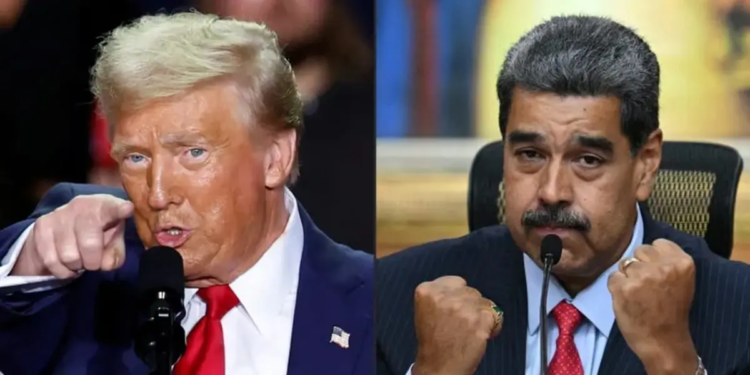While Donald Trump threatens Nicolás Maduro while denying wanting to “wage war” on Venezuela, the region is on fire. From one end of the continent to the other, the memory of the American “big stick” is resurfacing. South American chancelleries oscillate between cautious condemnation and calculated silence, fearing a return to an era of assumed interference.
Venezuela in the viewfinder
In an interview broadcast by CBS, Trump suggested that “Maduro’s days are numbered.” A few hours later, the Pentagon confirmed the increased presence of American naval units in the Caribbean, under the pretext of a vast anti-drug operation.
But for Caracas, the explanation fools no one. “Washington is seeking to impose regime change to get its hands on our oil resources,” replied Maduro, who is facing a series of American strikes on suspected traffickers’ boats – attacks denounced by the UN as “extrajudicial executions”.
A region divided, but suspicious
The regional response is far from uniform.
- In Brazil, Lula da Silva criticized “any form of foreign intervention in Latin America”, calling for respect for international law.
- In Colombia, the government remains discreet but worried: a frontal conflict on its border could destabilize the entire Andean region.
- In Mexico, President López Obrador recalled that “nations must resolve their crises without foreign gunboats.”
Even the United States’ closest allies, such as Chile and Peru, fear an uncontrollable spiral.
The Monroe Doctrine Resurrected
Behind this rise in tension hovers the shadow of an old principle: the Monroe Doctrine, this logic according to which “America for the Americans” once justified Washington’s interventions in Panama, Nicaragua or Chile.
Latin American analysts see in Trump’s posture a reissue of the security paternalism of the 1980s, this time disguised under the label of “fight against narco-terrorism”.
“The United States uses the pretext of drugs as they used yesterday that of communism,” summarizes an editorialist fromEl Tiempo (Bogotá).
Trump may claim “not planning anything” against Caracas, but his words resonate like a warning. US military sources have cited “limited strike scenarios” against strategic Venezuelan sites as the CIA steps up its intelligence operations in the region.
In Caracas, the army remains on maximum alert. State media broadcast images of anti-aircraft maneuvers over and over again, hammering home the slogan: “Sovereignty or death.”
Black gold, arm wrestling background
Behind the diplomatic facade lies a major issue: oil. Venezuela holds the world’s largest reserves, which have always been coveted.
As oil markets tense, any blow to Caracas resonates on world stock markets.
“Oil remains the key to the conflict: whoever controls Caracas controls a part of global energy geopolitics,” analyzes Argentine political scientist Esteban Paez.
Also read:








